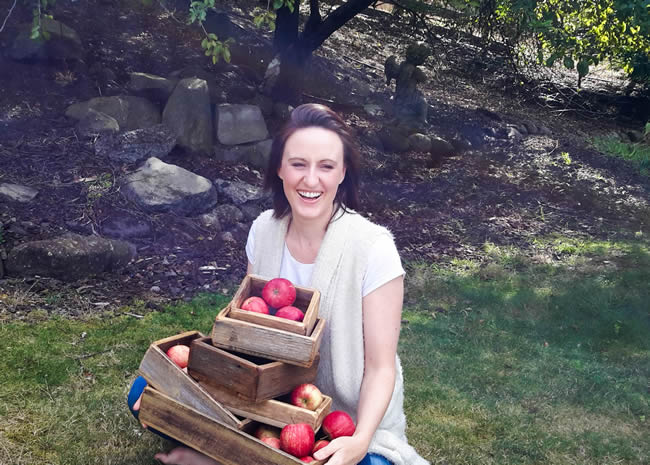Looking back now I should have seen it coming.
The long years of illness. The surgeries. The handbag constantly bulging with prescription medication. I hadn’t taken great care of my body and at some point that had to stop. There came a time when my health was more important than convenience.
There’s no question that organic food is what’s best for our bodies, and (like ultra-cliché yet true saying goes) “we are what we eat.” But even with a vegetarian nutritionist bestie and a serious drive to eat as healthy as possible, it took me years to transition my habits into ones that serve me well.
It can also be horrendously expensive and unrealistic for the average Joe/Josephine to turn their pantry into a health haven. And that’s speaking from experience.
The good news is that small steps can have a big impact, and it doesn’t require a whole life/kitchen overhaul to get started. It also doesn’t have to suck your soul out via your bank account.
Truly, the longest journeys start with the first step (cliché number two—hang around, there’ll be more).
Here are the four steps that gave me the biggest bang for my buck:
-
Replace oils with organic, unrefined virgin coconut oil.
You’ve seen the hype, surely. I can truly vouch for its deservedness, as coconut oil now has a use in every area of my home. Coconut oil contains short term, medium-chain saturated fatty acids, a healthy form of saturated fat. We metabolize these fats in the liver, and immediately convert them into energy (fuel for brain and muscle function) rather than storing them as fat.
As it maintains its beneficial properties at high temperatures (unlike olive oil), it is great for cooking. It’s a beautiful moisturizer and according to some research even protects against UV rays. In fact, this was all that saved my “so pale it’s almost see-through” skin from peeling off when visiting the harsh central Australian desert. It’s a great hair treatment, wrinkle softener and immunity booster. Its antibacterial properties helps all areas of the body to heal and repair whether ingested or applied to the skin. It can also draw toxins from the body through oil pulling (swish a tablespoon of oil around the mouth for 20 minutes and then spit it out).
Because coconut oil can replace cooking oils, beauty products, hair treatments and also help prevent illness, this is a great place to start. Plus, it’s super cheap compared to the cost of all of those other products and now fairly available. Again, be sure it is unrefined/extra virgin and certified organic.
-
Start with shampoo.
Hair products are notorious for carcinogenic additives, but here’s my biggest reason for choosing this to replace first: when you wash your hair and rinse, the product washes over your whole body (translation: it touches all your bits! All of them!) and gets absorbed everywhere. Therefore, more than any other beauty product, replacing this can benefit the whole body.
Plus, organic shampoos are not just hanging out in health stores with the cool kids and hipsters anymore, they are becoming mainstream and appearing in many stores. If there’s none in your local store, ask them why the heck not and when they are planning to get it for you.There are lots of divine organic natural hair products available online, too.
-
Give organic apple cider vinegar a try.
This one took me some time to come on board, but it really is amazing. Taking small amounts (approx. two teaspoons per day) acts as a super powerful probiotic, helps the body to absorb the important minerals from food, and has benefits for skin, hair, cholesterol levels, weight balance and blood sugar levels. It’s a powerhouse that makes a fast difference, and easy to add to the shopping list.
-
Research food growers and farmer’s markets in your area.
Let your fingers do the walking (cliché number three, I know you were waiting). Google search who is growing what in a 25 mile radius of you and where they sell. Sometimes markets are the only place farmers make a decent buck. You may be surprised how close you are to great food. If you are in an area that makes fresh food hard to access, there are many online companies who now deliver organics. The apples in the picture above are from Australia’s largest organic orchard, that I had no idea was an hour’s drive from me until I did a random net search.
Though buying from a farmer’s market doesn’t always guarantee organic, it provides opportunities to ask pertinent questions such as “Which farm does this come from? What has it been treated with? Is it spray-free or organic? What’s your phone number?” Ok the last one is just if they are cute, but if they can’t answer the others, don’t buy. You have a right to know what you are eating.This research is obviously the most time consuming, but is important as it kick starts the habit of asking questions and prioritizing quality food. And then you can sit back and enjoy the (ahem) fruits of your labour. (I’m done now, I promise).
Relephant:
Eating Local & Organic without Breaking the Bank.
Author: Crystal Davis
Editorial Apprentice: Rebecca Lynch/ Editor: Renée Picard
Photo: Provided by author












Read 0 comments and reply